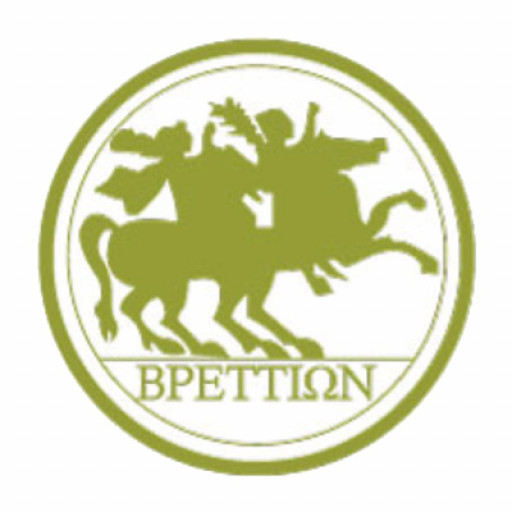Photos of university / #ouranu
Algal biofuels, drought resistant crops and bionic eyes may sound like things of the distant future, but these are just some of the projects our biotechnologists are working on today.
Biotechnology is a fast moving field where scientists use living organisms and their products, to solve real world problems facing modern society. This exciting field has broad applications in medicine, biology, agriculture, manufacturing, renewable energy and engineering.
You will learn the foundations of biology, including the basic principles of molecular and cellular biology, biotechnology, microbiology, societal and ethical issues in biotechnology and intellectual property. Elective courses available within science allow you to tailor the program to your specific interests such as medical, plant/agricultural or chemical biotechnology.
An ANU Bachelor of Biotechnology gives you the knowledge to develop the fuel sources, foods and medical treatments of the future, while teaching you to think ethically about how they will change our society.
This program is not available for Semester 2 commencement.
Career Options
Employment Opportunities
Leading-edge applications of biotechnology are being developed at ANU and in the surrounding research institutes. Our graduates have been taught by world class researchers and the degree can include real experience in a research laboratory.
This degree leads to careers in government regulatory bodies involved with health, agriculture, food and the environment as well as further study towards a career in research. You may also find positions in hospitals, food and pharmaceutical industries.
The Bachelor of Biotechnology requires completion of 144 units, of which:
A maximum of 60 units may come from completion of 1000-level courses
The 144 units must include:
60 units from the completion of the following compulsory courses:
BIOL1003 Biology 1: Evolution, Ecology and Genetics
BIOL1004 Biology 2: Molecular and Cell Biology
BIOL2161 Genes: Replication and Expression
BIOL2162 Molecular Gene Technology
BIOL3161 Genomics and its Applications
BIOL3191 Biology, Society and Ethics
CHEM1101 Chemistry 1
CHEM1201 Chemistry 2
CHEM2211 Chemical Biology 1
LAWS3104 Principles of Intellectual Property
6 units from completion of courses from the following list:
BIAN3014 Research Design and Analysis in Biological Anthropology
BIOL2202 Experimental Design and Analysis in Biology
ENVS1003 Introduction to Environmental and Social Research
PSYC2009 Quantitative Methods in Psychology
STAT1003 Statistical Techniques
STAT1008 Quantitative Research Methods
12 units from completion of courses from the following list:
BIOL2142 General Microbiology
BIOL2171 Biochemistry and Nutrition
CHEM2208 Chemical Biology 2
A minimum of 18 units from completion of 3000-level courses from the following subject areas:
BIOL Biology
CHEM Chemistry
NEUR Neuroscience
48 units from completion of elective courses offered by ANU
A maximum of 12 units from completion of 1000-level courses may contribute towards meeting the requirements of two Science majors with common 1000-level course requirements. In such cases, an equal number of units must come from the completion of additional courses from the Science course list.
Admission to all programs is on a competitive basis. Admission to undergraduate degrees is based on meeting the ATAR requirement or an equivalent rank derived from the following qualifications:
• An Australian year 12 qualification or international equivalent; OR
• A completed Associate Diploma, Associate Degree, AQF Diploma, Diploma, AQF Advanced Diploma or Graduate Certificate; OR
• At least one standard full-time year (1.0 FTE) in a single program of degree level study at an Australian higher education institution; OR
• An approved tertiary preparation course unless subsequent study is undertaken.
Requirements for domestic applicants:
ATAR:80
QLD Band:10
International Baccalaureate:29
For international students:
Refer to the table to see if you meet the requirements:
http://www.anu.edu.au/files/resource/IntAdmissTabl2014e.pdf
English Language Requirements:
ANU recognizes a number of English language tests as meeting the University’s English language requirements. The acceptable tests are IELTS (an overall score of 6.5 with at least 6 in each component of the test), TOEFL-paper based test (a score of 570), TOEFL-internet based test (a score of 80, with a minimum of 20 in Reading and Writing and 18 in Speaking and Listening), Cambridge CAE Advanced (80, grade A), PTE Academic (overall 64, minimum 55 in each section.)
Want to improve your English level for admission?
Prepare for the program requirements with English Online by the British Council.
- ✔️ Flexible study schedule
- ✔️ Experienced teachers
- ✔️ Certificate upon completion
📘 Recommended for students with an IELTS level of 6.0 or below.
ANU offers a wide range of scholarships to current and future students to assist with the cost of their studies. The University is committed to enabling all students, regardless of their background, to achieve their best at ANU and realise their potential.
Eligibility for ANU scholarships varies depending on the specifics of the scholarship and can be categorised by the type of student you are. Specific scholarship application process information is included in the relevant scholarship listing.
ANU offers bonus points for nationally strategic senior secondary subjects, and in recognition of difficult circumstances that students face in their studies.
Bonus points are applied to all applicants with an ATAR at or above 70. Points are awarded in accordance with the approved schedule, and no more than 10 points (maximum 5 academic points and maximum 5 equity points) will be awarded.
Bonus points do not apply to programs with an ATAR cutoff of 98 or higher.
Bonus Points are only awarded to domestic applicants applying for admission through UAC who have not previously attempted tertiary study.











